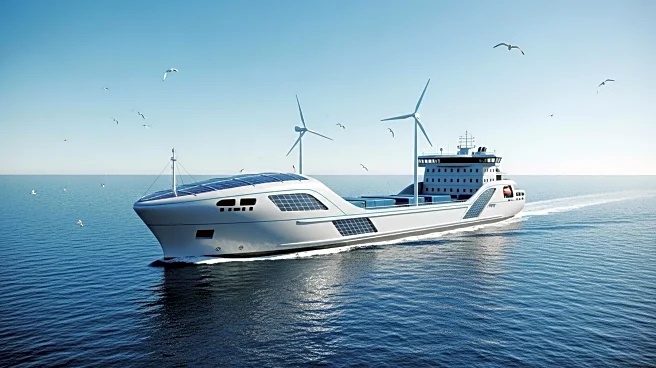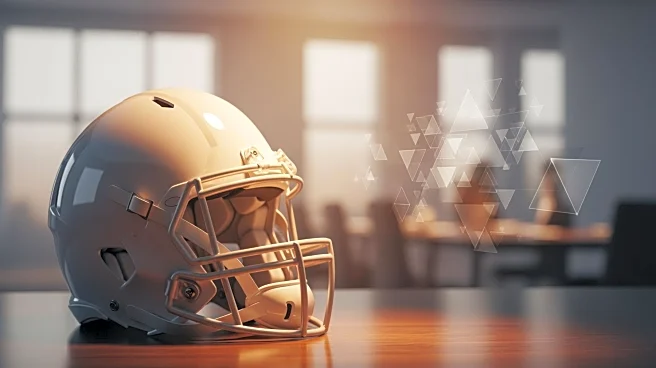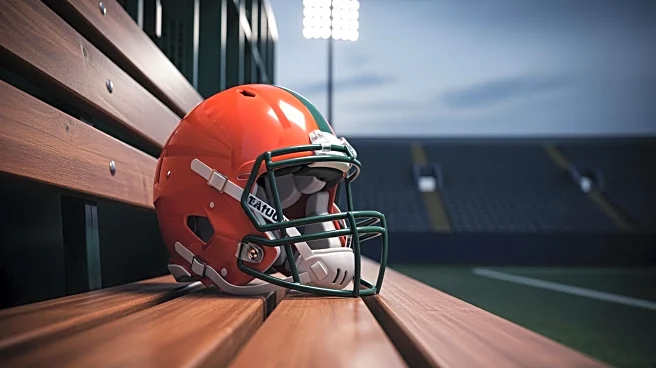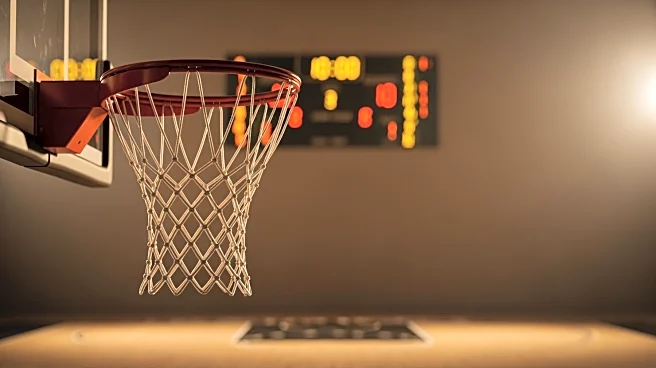What's Happening?
Höegh Autoliners has introduced its sixth Aurora-Class vessel, named Höegh Moonlight, into commercial operation at Sweden's largest port. Sponsored by Jenny Westermark, Senior Vice President of GTO Production Logistics at Volvo Group, the vessel is part of a series of 12 next-generation pure car and truck carriers (PCTCs). These vessels are designed to transition to clean fuels, with the first eight powered by LNG via dual-fuel engines and reinforced for future ammonia use. The Aurora-Class vessels are central to Höegh Autoliners' goal of achieving zero emissions by 2040, with the first eight vessels expected to deliver 58% lower emissions per transported car compared to the industry average.
Why It's Important?
The introduction of the Höegh Moonlight marks a significant step in the maritime industry's shift towards sustainable practices. By reducing emissions, Höegh Autoliners is addressing one of the most pressing challenges in shipping—decarbonization. This move not only aligns with global environmental goals but also supports Swedish industry by facilitating access to international markets through cleaner transport solutions. The commitment to zero emissions by 2040 reflects a broader industry trend towards sustainability, potentially influencing other shipping companies to adopt similar practices.
What's Next?
Höegh Autoliners plans to continue expanding its fleet with the remaining Aurora-Class vessels, with the final four units scheduled for delivery from 2027. These vessels will be dual-fuel and capable of operating on ammonia from the outset. The Port of Gothenburg, where the Höegh Moonlight was named, aims to reduce carbon emissions by 70% by 2030, through investments in shoreside power, green shipping corridors, and electrification. This collaboration between the port and Höegh Autoliners is expected to drive further advancements in sustainable maritime transport.
Beyond the Headlines
The Aurora-Class vessels represent a shift in the maritime industry towards long-term sustainability, with potential implications for global shipping standards. The focus on clean fuels and reduced emissions may lead to regulatory changes and increased pressure on other shipping companies to adopt similar technologies. Additionally, the collaboration between Höegh Autoliners and the Port of Gothenburg highlights the importance of partnerships in achieving environmental goals, setting a precedent for future industry cooperation.









